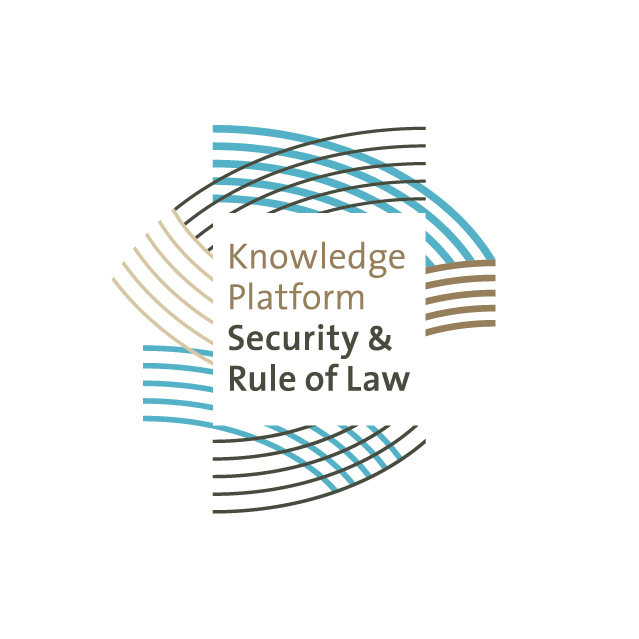01.01.2015
On 16 October, 2014, Spark, the Conflict Research Unit (CRU) of the Netherlands Institute of International Relations ‘Clingendael’, and the Knowledge Platform Security & Rule of Law hosted a workshop on ‘Effective cross-sector partnerships for business and development in complex and high-risk environments’ at the Africa Works! Conference in Leiden.
The workshop, moderated by Mr. Rens Twijnstra (African Diaspora Policy Centre), brought together speakers from different backgrounds – donor government (The Netherlands), host government (Sierra Leone), local business (Farmers & Co, Burundi), local NGO (Mobinc, Burundi) – with a view to raise the prospects that the increasing interest in partnering up will be translated into significant and sustained changes in the practices of actors on the ground.
Abubakarr Bangura, chairman of Sierra Leone Central Union, well established in government circles but most of all an entrepreneur himself, provided introductory remarks. Apart from addressing common challenges such as the absence of adequate data, he also highlighted some key factors which he believes are essential to build effective cross-sector partnerships: mutual trust and understanding, expectation management, clear rules of engagement, realism and flexibility. In his view, cross-sector partnerships should focus on maximizing the gains and minimizing the pains.
Sjoerd Smit, Department for Sustainable Economic Development, The Netherlands Ministry of Foreign Affairs as well as Mr. Ibrahim Sorie Kamara,Ambassador of the Republic of Sierra Leone to the Kingdom of Belgium and Head of Mission to the European Union, emphasized the importance of the ‘New Deal for Engagement in Fragile States’. Both indicated how New Deal principles are currently being incorporated in their development policies and strategies. Mr. Smit explained how cross-sector partnerships play a major role in Dutch development cooperation based on a model that is known as the Dutch Diamond Approach. He used the examples of the Dutch role in the IFC’s Conflict Affected States Initiative (CASA) and the Dutch Facility for Sustainable Entrepreneurship and Food Security (FDOV) to underline his point. The Netherlands portray their own role in cross-sector partnerships particularly as a broker of initiatives that converge peacebuilding and economic development.
The Ambassador indicated that Sierra Leone, as one of the seven countries that pilot the New Deal, is currently focusing on incorporation of the New Deal principles, for example in the country’s Agenda for Prosperity. By implementing legislation that enhances transparency, promotes the rule of law, and combats corruption and that facilitates partnerships between actors from different sectors, it invests in establishing reliable partnerships between the government and businesses. Successful partnerships have been built in the energy sector, in port development, in the shipping industry and more recently in the fight against Ebola.
NGO perspective
By using the case study of the Sorgum value chain in Burundi, Mr Seleus Nezerwe discussed the achievements and challenges of a cross-sector partnership that involved many different stakeholders, ranging from the Netherlands Embassy to the local farmers, from international NGOs like SPARK to local investors like BARUDI. Despite the successes of this partnership, there are still significant challenges ahead to make it even more effective. A very basic but telling example is the fact that the Burundese national government, as one of the partners involved, has adopted a national policy on agricultural investment which was in and of itself very helpful for the partnership, but it is written in French in a country where a very large majority of the people only speak Kirundi.
Private sector perspective
Adidjah Makangira, founder and owner of Farmers & Co, a Marketing and Sales organization involved in the export of coffee, presented a clear entry point where business and development outcomes could be mutually reinforcing. She gave us insight into the very specific challenges of the coffee sector in Burundi to all actors involved: the high degree of seasonality in the coffee industry and the much-needed rejuvenation of coffee trees, bring short term livelihood risks to a large group of local smallholders, for which coffee is their main source of income and on which her business is dependent. She made a plea for partnerships with other actors that help her business and the local community to address these challenges, as the private sector in Burundi, including her own company, is not able to facilitate income buffers to these local farmers on its own.
Despite the useful insights gained into how effective cross-sector partnerships can be built and supported to address the challenges and exploit the opportunities in these kinds settings through much needed mutually reinforcing business and development outcomes, this workshop is only a building block. There is still a great need to further build (mutual) understanding of how partnerships can be built and supported that are truly effective and sustainable, which are essential to improve engagement in complex and high-risk environments, like in fragile and conflict-affected settings.
Africa Works!
Organized by the Netherlands African Business Council (NABC) and the African Studies Centre (ASC) this year’s edition of Africa Works! focused on building new partnerships between actors from different sectors (private sector, civil society and governments) as a means to come to new and more effective engagements on the African continent. The Conference brought together over 700 different stakeholders, from Africa, The Netherlands, and elsewhere.
Research note and case study
A direct output of the workshop is a research note by Paul Lange (Clingendael) with the aim to contribute to the topic of cross-sector partnerships in fragile settings. In addition, the research note draws on the example of a partnership in Burundi that was also presented during the workshop. It involves a multinational company, a donor government and international and national NGOs that together work on the “White Sorghum value chain development” a project on youth employment in remote areas in Burundi (‘Burundi partnership’). This case study is available here.
Please consult the following link for the research note




